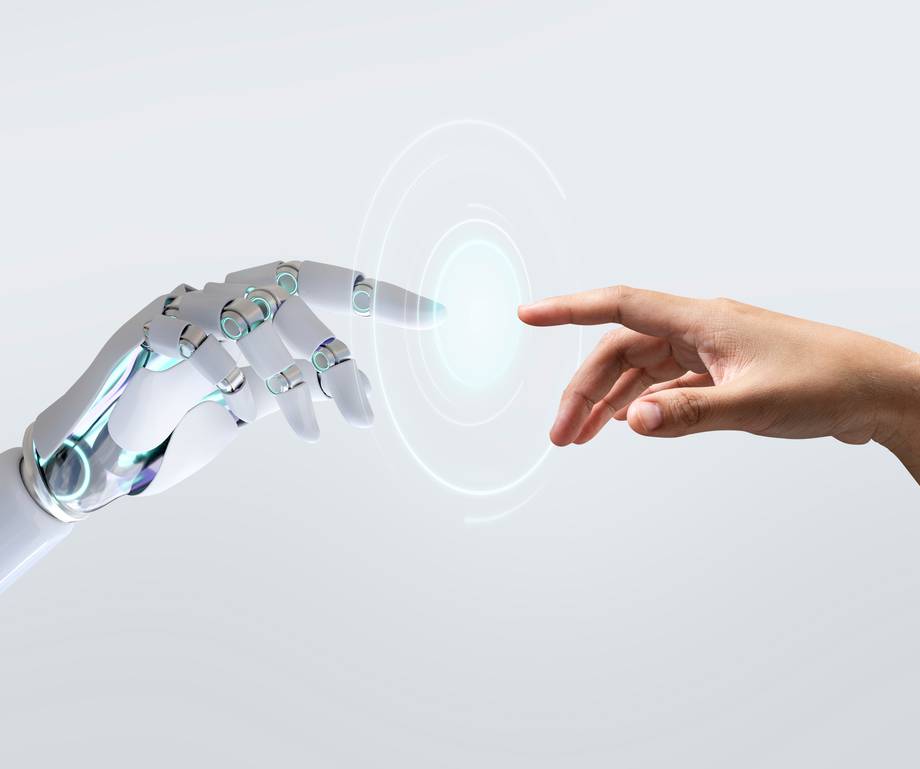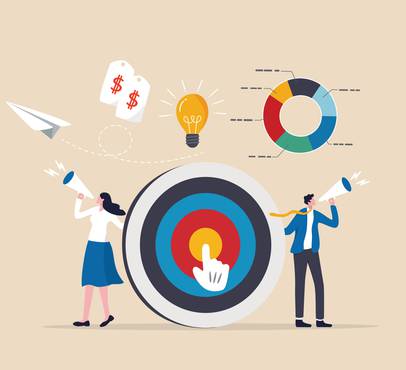It might mean faster service, quicker response times and automated processes, but what’s the other side of the AI coin? How will consumers respond?
To understand which brands will come out on top of the great AI debate, we must first understand how it can be used by brands and the implications thereof on consumers.
AI in marketing: the use cases
AI in digital marketing is no new thing — incompetent customer service chatbots are amongst our oldest online companions. But only in the last two years has its adoption for ideation, content creation and sentiment analysis seriously accelerated.
Of course, AI can be a great tool for maximising return because of its efficiency and speed.
Not only that, but its increasing ability to generate at least passable content for simple tasks such as emails, blog content and more makes it an enticing gateway for clients seeking a quick-win, no-cost choice — especially if hiring an agency or in-house marketer is off the table.
A few popular uses for AI in marketing include campaign ideation (brainstorming), simple content creation, consumer service and interaction, personalisation, data analysis and number crunching — such as yearly forecasting.
As any paid media marketer will also tell you, the insights and recommendations generated by AI learning can certainly be helpful for optimising campaigns.
How do consumers feel about brands using AI?
It is all well and good to utilise the power of AI to drive campaigns forward, but the concern lies in how the use of AI impacts the work (and perception) of brands.
We are all guilty of wanting things quicker, so for such elements as instant chat for basic requests, many of us, as consumers, will still welcome a degree of AI intervention in our online lives.
But just how much are we willing to bear the bots?
It is no secret that strong brands rely on the ability to connect with audiences. Here, the use of AI has potential to fracture these carefully-crafted bonds through its lack of humanity and sensibility.
“Over 7 in 10 consumers agree that greater integration of GenAI into social media will harm user experience.”
AI is not (yet) able to devise content which captures the same range of sentiment as a real marketer and, as such, despite increasing capabilities, consumer trust is not completely following suit.
Three-quarters of consumers still can’t bring themselves to trust AI
Despite all the incredible advancements, it’s a fact that 76% of consumers are concerned about misinformation from AI. It’s increasingly seen as inauthentic noise pollution — they still don’t trust in what it produces.
Product descriptions, reviews, websites, chatbots or data — consumers just can’t see past the potential for erroneous output in an overwhelming sea of AI.
And just as consumers don’t yet trust AI, they can’t have loyalty, perception and trust for brands that are seen to rely too heavily on it.
Even legitimate and established brands risk their relationship with their audiences if generative AI content is seen as playing too great a role in their marketing output.
As content creators pump out ever more AI-written content, the balance between what’s robot and what’s human starts to shift. It’s this which has led to the nascent growth of ‘acoustic’ brands.
Introducing the ‘acoustic’ brand
Acoustic brands seek to reinforce the value of authentic human connection by minimising AI use in their marketing output.
We know that ‘standing for something’ is a big draw for like-minded audiences these days, and it’s hardly a controversial stance to be favouring the human over the automaton.
So, as customers become increasingly discerning about generative AI, investing the necessary human capital to portray yourselves as an acoustic brand could be very much a vote winner.
Trust in AI is already ‘eroding’
According to research in Customer Experience Magazine, 16% of consumers trust websites that allow completely AI-written content. Only 22% would trust AI-generated product photos on a website.
If your brand is associated with overwhelming use of AI, then you can bet that people won’t feel a connection.
Research by Gartner forecasts the emergence of acoustic brands in years to come: by 2027, one-fifth of brands will leverage the absence of AI in their business as a point of differentiation. They point out that trust in AI, compared to humans, is already eroding.
“Mistrust and lack of confidence in AI’s abilities will drive some consumers to seek out AI-free brands and interactions.”
AI can’t cultivate a community
Simply put, AI is not yet capable of replicating and evoking the emotion that a human can. Content and interaction produced exclusively (or largely) with the use of an AI language model will fail to earn buy-in (and that all-important sense of community from consumers).
Brands need to embrace and allow organic interactions between their consumers online, as these go on to fuel recommendations, reviews and a culture of support and trust.
Of course, the importance of the human touch doesn’t carry weight with every consumer. Many will opt for convenience and speed, as you would expect. But for the brand-loyal among us — those of us who seek connection — tailored, personal and distinctly human service will reign supreme.
There’s also a rather more technical element to this — Google is already penalising websites that have too much AI generated content. Brands going acoustic could be benefiting their organic search engine visibility in the longer term.
How do I become an acoustic, human brand?
This could look like real people on the end of a phone for customer service, human live chat operators and frequently-asked questions written by real people who’ve had the experience with the issues of genuine consumers.
It can also mean placing user-generated content at the heart of your campaigns and adopting a ‘low-fi’ aesthetic — imperfect is the new perfect.
It may also mean founder stories and videos at the heart of your marketing activity. Also, think more carefully-curated, styled imagery that distances itself from AI generators and those using them.
All of these touch points with human-led marketing are the signifiers of an acoustic brand.
We can expect brands choosing the acoustic path to become more vocal about this, and while they may not be that they scream it from the rooftops, humanised marketing is certainly going to have a moment.
“A subsection of brands will shun AI and prioritize more human positioning. This ‘acoustic’ concept will be leveraged to distance brands from perceptions of AI-powered businesses as impersonal and homogeneous.”
Balancing the human with the artificial 🧑🤝🤖
It is for brands to decide on their preference for speed over human touch, bottom-line over brand-building — and of course for consumers to consider what matters more to them in connecting with the people they buy into (and from).
But don’t throw out the generative AI chatbots with the bath water — there are opportunities. Quicker results and achievements with an element of input from generative AI clearly frees up creatives to explore new avenues.
Time saved in devising those campaign ideas can be poured into tweaking the eventual output to appear more human. Time saved by GPT-4 in doing the research donkey work can be diverted in tailoring your next blog post to be more on brand.
When used strategically and appropriately for ‘narrow’ tasks, AI can actually give you more time to serve consumers and audiences in a more tailored, personal and hands-on way.
There are no right or wrong answers here, of course it’s simply a case of preference and priority based on what your customers value.
After a human helping hand in connecting with your audiences? Contact our team of marketing and branding experts today.
Fancy a good ol' chat about the values of marketing to your business?
Drop Us a LinePost by
Project



